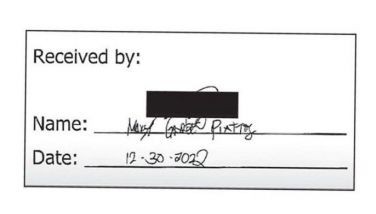CHR: Media rights violated in Pen siege
MANILA, Philippines – Police officers who arrested and jailed journalists covering the six-hour siege at the Peninsula Manila Hotel in Makati City last year have been found to have commited various human rights violations.
This was the finding of the Commission on Human Rights (CHR) in its 20-page resolution released yesterday.
The commission said the detention of journalists was arbitrary and violated the constitutional right of journalists to report events of public interest.
But Interior Secretary Ronaldo Puno defended the Philippine National Police (PNP), saying the “important thing was that the rebellion was stopped without anybody getting hurt” in the siege led by detained Sen. Antonio Trillanes and Brig. Gen. Danilo Lim in November last year.
“The PNP did what it needed to do – to protect everybody and we stand by that,” Puno said.
A complaint was filed with the CHR by the National Press Club (NPC) last Dec. 3 against Puno, PNP chief Avelino Razon, and National Capital Region Police Office chief Geary Barias, among others.
CHR chairperson Leila de Lima said “there has been no basis to justify detaining and ‘processing’ of members of the media in Camp Bagong Diwa during the siege.”
The CHR also noted “conflicting claims” by the PNP, adding that it “shows uncertainty in their actions and offers nothing but arbitrariness, whim, and doubt on the part of police officers.”
De Lima said the police also “failed to inform the media of the nature and cause of accusation against them, of their right to remain silent and their right to counsel.”
“Members of the media who went to Camp Bagong Diwa were kept in ignorance as to whether they were brought there as witnesses or as suspects. They were not accompanied by any lawyer of their own choice nor supplied with one – a grave abuse of their right to security of their persons,” the CHR resolution stated.
It also said no charges were filed against the journalists for alleged crimes they committed, which violates Article 24 of the Revised Penal Code, prohibiting the detention of a person without legal grounds, and Article 25 of the RPC, prohibiting the delay in the delivery of detained persons to the proper judicial authorities.
The CHR found that the police failed to adhere to human rights standards in the manner they brought the journalists to the police camp.
“Members of the media were restrained by using plastic handcuffs, which are instruments of restraint not justified under the circumstances.”
“There is no proof that the media displayed violence or that they tried to escape the police, which could have justified their restraint. They are professionals merely doing their jobs. They were without weapons and the restraint applied to them does not pass the tests of reasonableness, necessity, and proportionality,” De Lima said.
But the CHR noted that the act of police operatives in arresting and detaining journalists “does not seem to have been meant in any way to curtail the freedom of the press since cameras were still allowed to run even during the handcuffing of journalists and reports of both the hotel siege and their subsequent detention were neither censored nor blocked on broadcast or in print media.”
The CHR, however, said that such actions “unnecessarily sent the signal to the media and the public in general that they (media men) can be forcibly deprived of their liberty even before there is clear legal basis for such (action).”
De Lima warned that acts to detain members of the media without clear legal basis “dangerously stand astride the borderline between valid police power and media repression in violation of fundamental freedoms.”
The CHR referred the NPC complaint to the Department of the Interior and Local Government and the PNP “for internal inquiry and filing of possible administrative/disciplinary cases and measures.”
It also recommended the review of the PNP/military Rules of Engagement or Standard Operating Procedures, especially during crisis situations.
The CHR likewise urged Congress to pass a law on command responsibility to ensure accountability of officials during police/military operations.
PNP spokesman Chief Superintendent Nicanor Bartolome said they are glad “the CHR has already completed its own investigation into the issues raised by the NPC.”
“As far as we are concerned, every police action on the ground is presumed to have been performed with regularity and within the framework of our legal system,” Bartolome said.
He added “now that the matter is being endorsed to the DOJ, we feel that the concerned police officers will be given every chance and opportunity to air their side, present their own evidence, and explain all their actions.”
The NPC and the National Union of Journalists in the Philippines (NUJP) said they were not happy about the recommendations of the CHR.
Benny Antiporda, NPC president, said the CHR resolution, including its recommendations, was “lacking in concrete measures” to ensure that police officials and personnel involved in the arbitrary arrest and detention of journalists would be held accountable.
“The resolution found prima facie evidence that the PNP indeed violated the rights of the members of the media, but I find it half-baked because the recommendations were not that strong or powerful,” he added.
Joe Torres Jr., president of the NUJP, said that the CHR resolution might not be totally useless.
Torres said that NUJP is likely to use parts of the CHR resolution to boost their case against the police filed before the Court of Appeals.
“(But) how can we expect a case to prosper in the DOJ when Justice Secretary Raul Gonzalez already prejudged the issue,” said Torres, recalling how the DOJ chief earlier described the suit filed by journalists against the government as a “publicity stunt.”
Gonzalez stressed that the CHR can only make recommendations, but cannot prosecute.
“They can only make recommendations. But we are not bound by it,” he said. — Katherine Adraneda, Cecille Suerte Felipe, Mike Frialde
- Latest
- Trending




























